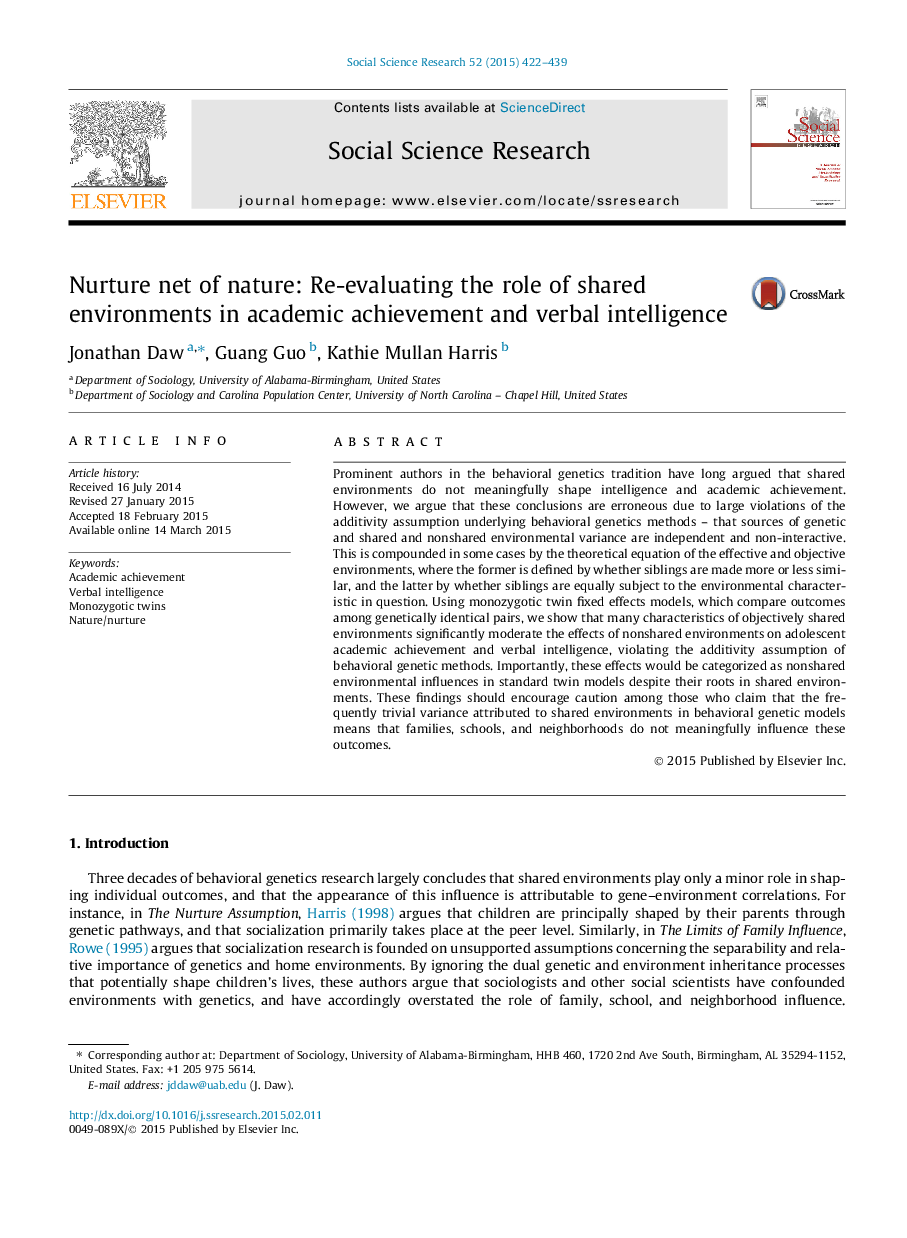| کد مقاله | کد نشریه | سال انتشار | مقاله انگلیسی | نسخه تمام متن |
|---|---|---|---|---|
| 955709 | 1476123 | 2015 | 18 صفحه PDF | دانلود رایگان |
• Behavioral geneticists often claim that shared environments have little influence.
• This conclusion rests on assumptions that are likely often violated.
• We study academic achievement using twin fixed effects models.
• We show that shared characteristics modify effects of nonshared ones.
• This is an important feature of how shared environments work.
Prominent authors in the behavioral genetics tradition have long argued that shared environments do not meaningfully shape intelligence and academic achievement. However, we argue that these conclusions are erroneous due to large violations of the additivity assumption underlying behavioral genetics methods – that sources of genetic and shared and nonshared environmental variance are independent and non-interactive. This is compounded in some cases by the theoretical equation of the effective and objective environments, where the former is defined by whether siblings are made more or less similar, and the latter by whether siblings are equally subject to the environmental characteristic in question. Using monozygotic twin fixed effects models, which compare outcomes among genetically identical pairs, we show that many characteristics of objectively shared environments significantly moderate the effects of nonshared environments on adolescent academic achievement and verbal intelligence, violating the additivity assumption of behavioral genetic methods. Importantly, these effects would be categorized as nonshared environmental influences in standard twin models despite their roots in shared environments. These findings should encourage caution among those who claim that the frequently trivial variance attributed to shared environments in behavioral genetic models means that families, schools, and neighborhoods do not meaningfully influence these outcomes.
Journal: Social Science Research - Volume 52, July 2015, Pages 422–439
